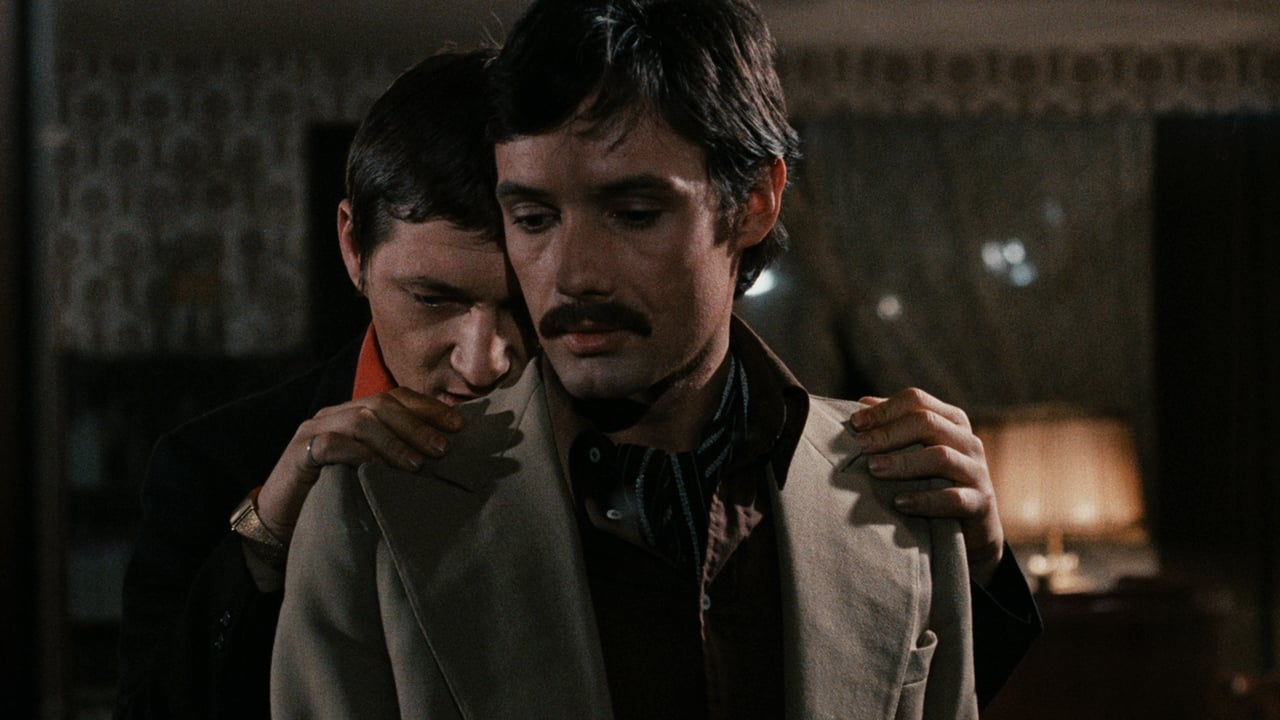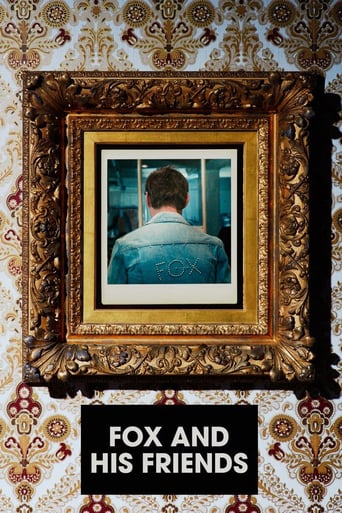

Fox and His Friends, one of Fassbinder's favorites among his work, and my first experience seeing a film by the astonishingly prolific Rainer Werner Fassbinder, carries most of its appeal in the sensitive art of coalescing the out of the ordinary and the commonplace. In the world of Fox and His Friends, gay men vastly outnumber the straight people much in the same way most mainstream films have an inverted social perspective.Fassbinder himself takes the plum lead, a naive young working-class hustler who wins the lottery and in next to no time find himself, and his lottery spoils, adopted by Munich's gay social circle. He is one of only two directors of whom I know who have cast themselves in roles that incidentally bare their dangling genitals, as if the preceding crotch shot is not rousing enough. (The other is Guy Maddin.)This West German drama gives the impression of being about a relationship between Fassbinder's cool, masculine young punk and the outwardly amiable bourgeois son of a factory owner, but it slowly begins to head for a two-way street of class consciousness.The factory owner, we find out, is about to go out of business. The son hopes to save the company. One way out might be to fleece the effortlessly buttered up lottery winner out of his wealth, possibly using love as an excuse.Fassbinder is terrific in his apparently complete creative control with scenes in which dialogue beyond words, subtext is unthinkable, and direct actions are impossible. This knack blossoms in the film's most thought-provoking scenes, counting a skillfully multifaceted dinner scene. The factory owner's son brings Fassbinder home to meet his parents, and it becomes distressingly evident that the only real reason sexuality is not an issue with them is because money is, though this is not implied through their actions, but their son's.This moving piece of blatant ruthlessness, which excludes all life not within the particular intentions of its co-writer-producer-director-star, moves in and out of the now timeworn gay demiworld that has been John Rechy's atmospheric mainstay: Its bars with retro rock and roll on the jukebox and queens for barflies, its revelries, its maneuverings. And this melodrama's indications progressively grow to be sadly unmistakable, that Fox is the prey of the capitalist social order that so swiftly made him well-off, duped by "friendships" for which he doesn't even understand that he's picking up the tab.
... View MoreThis is the first Fassbinder film I've seen, thanks to Francois Ozon, whose adaptation of Fassbinder's play Water Drops on Burning Rocks turned me on to him. After seeing Fox and His Friends, which stars Fassbinder, I most definitely want more. The story here is familiar - 'loser' gets to win big time and discovers how quickly people are willing - and able - to exploit him. It's the way the piece is written and performed that elevates it above predictability; there is a certain tongue-in-cheek quality to the proceedings that make it thoroughly captivating, through to the bitter end.
... View MoreThe ironically titled Fox and His Friends, Fassbinder's rather excellent study of a none-too-bright circus worker who wins a small fortune in the lottery, is a touching film that features a great performance from Fassbinder himself in the title role. A reflection on the class system and homosexual relationships of 1970's Germany, Fox and His Friends is unsentimental and guileless most of the time. Fox (Fassbinder) is one of the main attractions of a circus like festival, with his lover being arrested for tax fraud. Fox somehow knows he'll win the lottery, so when he picks up a wealthy man at the local 'pick-up toilets', Fox makes sure he reaches the store in time to lodge his ticket. Cut to Fox celebrating his 500 000 marks win, he's drinking in his usual tavern with the effete bar staff and clientele. Fox then somehow becomes involved with a somewhat arrogant and pretentious man, already in a relationship, who takes the naïve Fox for a ride, spending his money in selfish and extravagant ways. Fassbinder's melodrama is droll and poignant, with a tragically ironic ending. Oh, and you have to give extra marks to a director who inserts lengthy nude scenes of themselves in their films.
... View MoreOne of Fassbinder´s most sad, dramatic films. Very 70´s and interesting. The gay theme must have been very provocative in these times. But if you want to watch another, even more gay film by him, watch his final movie "Querelle" (after the novel "Querelle de Brest" by Jean Genet). For me this one is a ´9´.
... View More